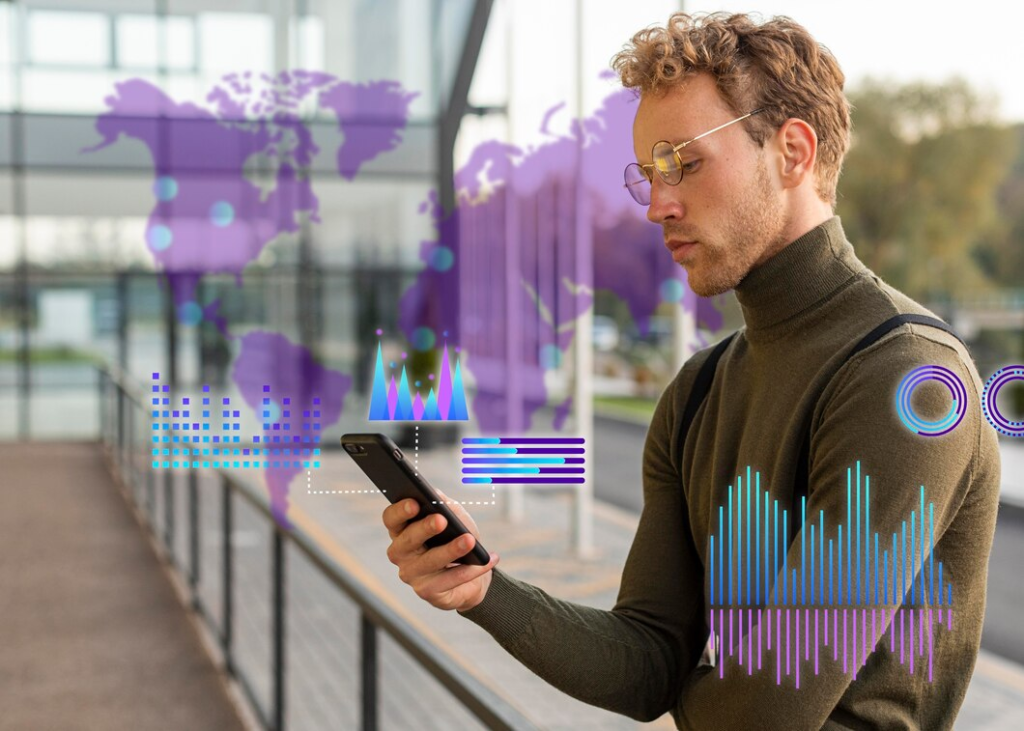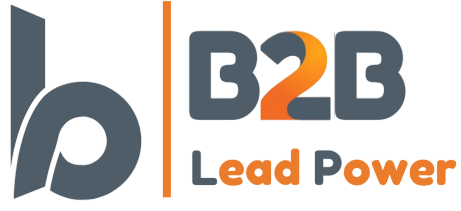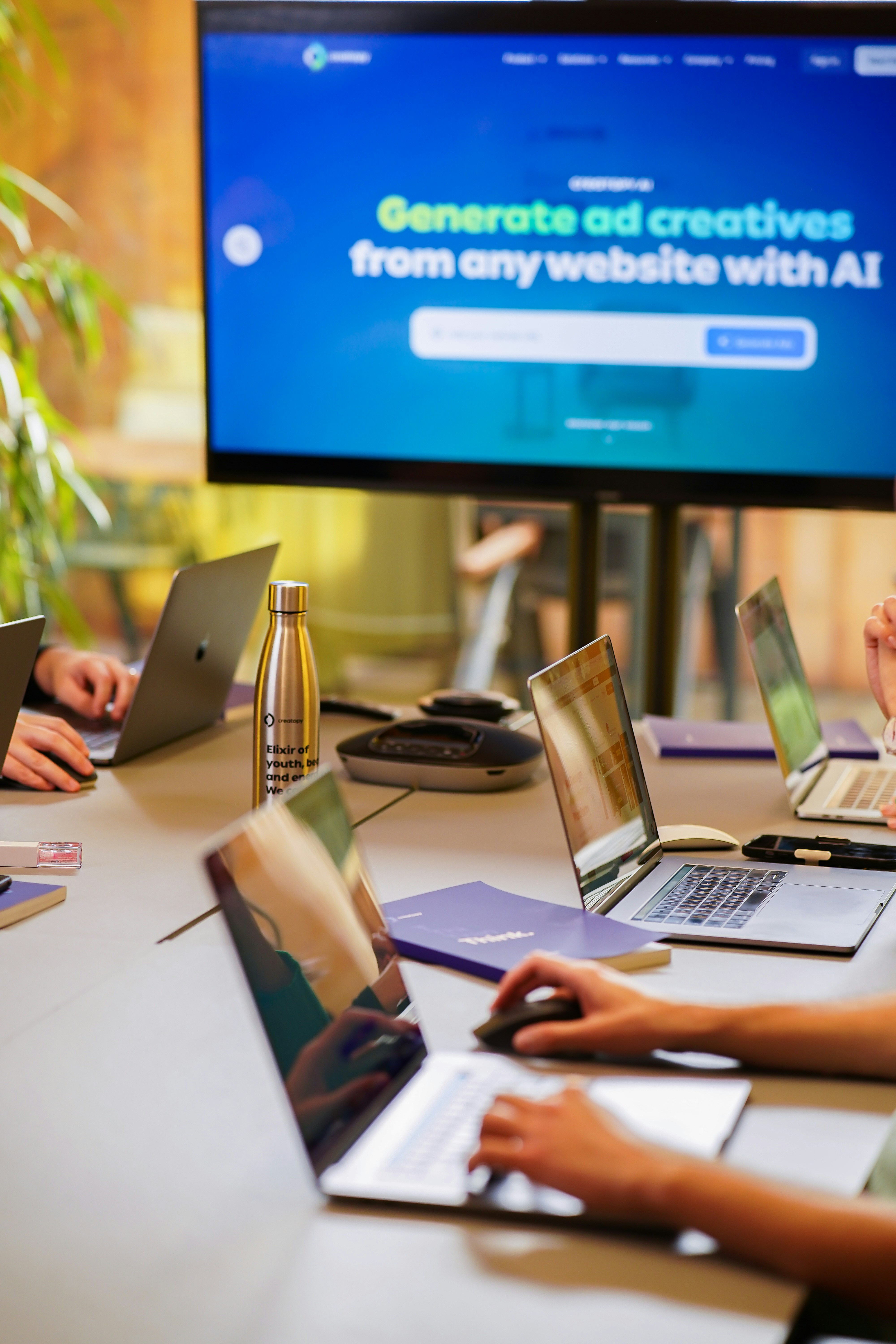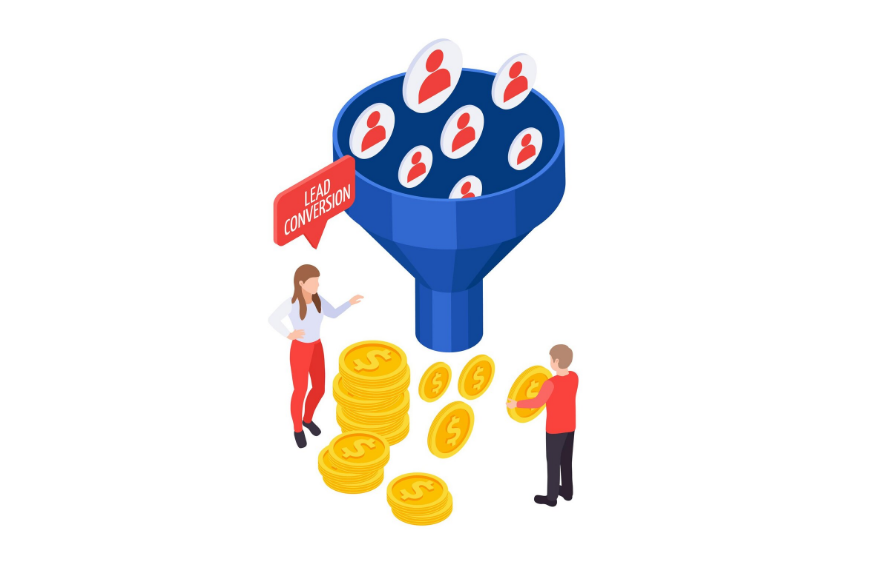Introduction to B2B Lead Generation
B2B lead generation is a critical process through which businesses identify and cultivate potential clients or customers for their services and products. In today’s competitive landscape, the ability to effectively generate and manage leads is essential for sustaining growth and achieving long-term success. Businesses often rely on a combination of traditional methods, such as networking and cold calling, alongside modern strategies that leverage technological advancements, like data analytics and digital marketing.
The significance of B2B lead generation can be observed in its direct impact on sales and revenue. By effectively identifying and nurturing leads, businesses can create a steady flow of prospective clients, which ultimately drives sales performance. However, traditional lead generation methods face several challenges, such as the difficulty in accurately identifying target audiences and the time-consuming nature of processes like cold calling and direct mail campaigns. Furthermore, these methods often yield low conversion rates, prompting businesses to seek more efficient solutions.
The evolving digital marketplace has necessitated the adoption of innovative approaches to lead generation. Companies are increasingly recognizing the importance of integrating technology into their strategies. This has led to the rise of AI in lead generation, which offers profound advantages over conventional methods. AI can analyze large sets of data, identify patterns, and automate repetitive tasks, thereby enhancing the efficiency and effectiveness of lead generation efforts. With the proliferation of digital tools, businesses must adapt their strategies to utilize AI and other technologies to remain competitive and meet the changing demands of their target markets.
As the business environment continues to evolve, the integration of AI in lead generation strategies is becoming increasingly crucial. Businesses that embrace this shift will not only improve their lead generation processes but will also position themselves favorably against competitors in the market.
The Role of AI in Lead Generation
Artificial intelligence (AI) has emerged as a transformative technology in various business practices, particularly in lead generation strategies. By harnessing AI, organizations can streamline their processes, improve efficiency, and enhance the quality of leads generated. This shift is fundamentally altering how businesses identify and engage potential customers.
Machine learning, a subset of AI, plays a significant role in analyzing vast quantities of data to pinpoint trends and patterns that human operators may overlook. By utilizing advanced algorithms, machine learning systems can identify high-quality leads by evaluating prospects based on their behavior, demographics, and engagement signals. As a result, companies can focus their efforts on leads with a higher likelihood of conversion, thus maximizing their return on investment.
Natural language processing (NLP), another key component of AI, facilitates better communication and understanding between businesses and prospective clients. NLP technologies can analyze email correspondence, social media interactions, and chat conversations to extract valuable insights about customer preferences and pain points. This information is instrumental in tailoring marketing messages and lead generation strategies to address the specific needs of potential clients.
Furthermore, AI-driven tools can automate repetitive tasks related to lead generation, such as data entry and initial outreach. This automation allows sales teams to redirect their focus toward nurturing relationships and closing deals rather than spending time on time-consuming administrative work. Additionally, AI systems continuously learn from interactions and outcomes, which enables them to refine their lead scoring and targeting over time.
In summary, the integration of AI in lead generation represents a significant advancement in business strategy. By utilizing machine learning and natural language processing, organizations can optimize their lead generation processes, ensuring a more effective approach to identifying and engaging potential clients.
Enhancing Targeting and Segmentation with AI
In the ever-evolving landscape of B2B marketing, effective targeting and segmentation are paramount for success. With the rise of artificial intelligence (AI) in lead generation, businesses can now utilize sophisticated algorithms to enhance these processes significantly. AI-driven tools analyze vast amounts of data to identify patterns and trends, enabling organizations to create detailed ideal customer profiles. These profiles allow marketers to understand not only the demographics but also the behaviors and preferences of potential leads.
One of the most significant advantages of AI in lead generation is its ability to automate and optimize segmentation. Traditional methods often rely on static criteria, which may not accurately reflect market dynamics or changes in consumer behavior. However, AI can continuously learn from new data inputs, ensuring that segmentation remains relevant and dynamic. For instance, machine learning algorithms can assess past interactions and engagement levels to refine audience segments, helping to target the most promising leads with greater precision.
Moreover, AI enables personalized marketing efforts by delivering tailored content that resonates with specific segments. By understanding the unique needs and pain points of each group, businesses can develop messaging that speaks directly to their audiences. Automated recommendation systems can suggest relevant products or services based on individual preferences, thereby increasing the likelihood of conversion. In essence, AI not only streamlines the process of targeting potential leads but also enriches customer interactions, resulting in a more personalized experience.
As organizations increasingly adopt AI in their lead generation strategies, the need for precision in targeting and segmentation will only continue to grow. Embracing these advanced capabilities will empower marketers to refine their approach, ultimately driving more substantial results in their campaigns.

Predictive Analytics: Anticipating Customer Behavior
Predictive analytics plays a pivotal role in enhancing lead generation strategies within the B2B sector, and the integration of AI in lead generation processes is proving to be a game-changer. By leveraging sophisticated algorithms and analyzing vast amounts of historical data, businesses can forecast customer behavior and identify emerging trends. This capability allows organizations to adapt their marketing efforts and tailor their outreach more effectively, ultimately leading to higher conversion rates.
Through the use of AI, predictive analytics can sift through intricate patterns in customer data, revealing insights that might otherwise go unnoticed. For instance, it can analyze previous interactions, purchase histories, and engagement metrics, which enable companies to identify key indicators of potential leads’ interests and purchasing behavior. By anticipating what customers may need or want, businesses can proactively engage with leads, providing them with personalized content and solutions that meet their expectations.
Moreover, predictive analytics contributes to optimizing marketing resources, as it allows organizations to focus on the leads that are most likely to convert. Instead of casting a wide net, companies can prioritize their efforts on high-potential leads identified through AI analysis, thereby improving the efficiency of their lead generation campaigns. This strategic approach not only enhances Return on Investment (ROI) but also cultivates a more meaningful relationship with prospective clients by addressing their needs more comprehensively.
As the digital landscape continues to evolve, incorporating AI in lead generation through predictive analytics will become increasingly crucial. Companies that successfully harness these capabilities will likely stay ahead of their competitors by consistently understanding and anticipating customer behavior, driving meaningful engagement, and ultimately enhancing their business outcomes.
AI-Powered Tools for Lead Generation
The landscape of lead generation has been significantly transformed by the advent of artificial intelligence (AI) in recent years. Various AI-powered tools and platforms are now available, offering innovative solutions that streamline and enhance the lead generation process. These tools help businesses not only to identify potential leads but also to nurture them effectively.
One prominent tool in this realm is HubSpot, which utilizes AI algorithms to analyze customer data and predict future behavior. Its lead generation features include automated contact management, predictive lead scoring, and detailed analytics. By leveraging these capabilities, companies can prioritize high-value leads, ensuring that their outreach efforts yield maximum results.
Another noteworthy platform is Drift, known for its AI chatbots. These chatbots engage website visitors in real-time conversations, helping to capture leads instantly. Drift’s AI continually learns from interactions, allowing it to provide personalized responses that can build rapport with potential clients. This immediacy not only enhances user experience but also increases conversion rates.
LinkedIn Sales Navigator is also leveraging AI capabilities to improve lead generation outcomes. Through advanced search filters and recommendations, businesses can identify and connect with the right prospects. The platform’s AI analyzes user behavior to suggest relevant leads and endorse mutual connections, streamlining the networking process significantly.
Furthermore, ZoomInfo employs AI-driven data enrichment tools that allow organizations to build comprehensive lead profiles. By integrating various data sources, it provides a detailed view of each prospect, enabling more targeted marketing efforts. This data-enhanced approach ensures that lead generation strategies are tailored to address specific needs and pain points of potential customers.
Collectively, these AI-powered tools represent a significant shift in how businesses approach lead generation. They illustrate the potential of utilizing AI not just for data mining, but also for ongoing lead nurturing, ultimately contributing to a more efficient and effective sales strategy.
Challenges and Ethical Considerations of AI in Lead Generation
The integration of artificial intelligence (AI) in lead generation strategies presents numerous opportunities for enhanced efficiency and effectiveness. However, it is essential to acknowledge the potential challenges and ethical dilemmas this technology can introduce. One of the primary concerns surrounds data privacy. Organizations utilizing AI systems for collecting and analyzing customer data must adhere to strict regulations, such as the General Data Protection Regulation (GDPR) in Europe or the California Consumer Privacy Act (CCPA). These regulations emphasize the importance of consumer consent and transparency in data usage, requiring companies to navigate complex compliance protocols while implementing AI in lead generation.
Another significant challenge is the presence of bias in AI algorithms. AI systems are only as unbiased as the data fed into them; if historical data reflects societal biases, the resulting algorithms may inadvertently perpetuate these discrepancies. For instance, AI can favor certain demographics over others when identifying potential leads, thus undermining the effectiveness and fairness of lead generation efforts. Consequently, it is crucial for organizations to regularly audit their AI systems to identify and mitigate any biases that may arise, ensuring equitable outcomes for all potential customers.
Furthermore, while AI can automate various processes involved in lead generation, it is vital to maintain human oversight. AI technologies, despite their advanced capabilities, cannot fully replicate human intuition and understanding of nuanced customer interactions. Therefore, incorporating a human element in the deployment of AI allows for the evaluation of contexts that machines may overlook, facilitating more ethical decision-making. By blending AI’s analytical prowess with human insight, companies can enhance their lead generation strategies while adhering to ethical standards and fostering trust among their customer base.
Real-World Case Studies: Success Stories in AI-Driven Lead Generation

In recent years, numerous businesses have successfully integrated AI in their lead generation strategies, yielding impressive results. One notable example comes from HubSpot, a leading inbound marketing platform. By leveraging an AI-driven tool known as “Lead Scoring,” HubSpot was able to prioritize leads based on their likelihood to convert. The algorithm analyzed historical data, engagement levels, and customer profiles, enabling sales teams to focus their efforts on high-potential prospects. Consequently, HubSpot reported a 30% increase in sales conversion rates, underscoring the power of AI in refining lead generation efforts.
Another compelling case is that of LinkedIn, which utilized AI to enhance its advertising platform. By implementing predictive analytics, LinkedIn was able to deliver more targeted ads to users, based on their behavior and preferences. This personalization not only improved user engagement but also led to a significant boost in lead generation for advertisers. Evidence suggests that advertisers leveraging LinkedIn’s AI tools reported a 50% increase in leads, laying the groundwork for a more effective marketing approach resonating with specific audiences.
Shopify, a major e-commerce platform, also adopted AI for lead generation through chatbots. These virtual assistants engage potential customers in real-time, providing immediate responses and personalized recommendations. As a result, Shopify saw a 25% increase in inquiries that converted into sales, illustrating how AI can facilitate lead nurturing and enhance the overall customer journey. The use of chatbots not only streamlined operations but also offered valuable insights into customer behavior, proving critical for future marketing strategies.
These real-world case studies highlight the transformative impact that AI can have on lead generation processes. The experiences of HubSpot, LinkedIn, and Shopify illustrate vital lessons: first, the importance of data-driven decision-making; second, the value of personalization and engagement; and finally, the necessity of continuously adapting strategies based on performance metrics. As more businesses recognize the benefits of integrating AI, the future of lead generation will be increasingly shaped by these innovative approaches.
Future Trends: What to Expect in AI and B2B Lead Generation
The landscape of B2B lead generation is on the brink of significant transformation, driven largely by advancements in artificial intelligence (AI). As technology continues to evolve, several trends are expected to shape the future of lead generation strategies. One notable advancement is the continued refinement of AI algorithms, which are becoming increasingly sophisticated in understanding patterns in data. This enhancement will allow businesses to better identify potential leads based on nuanced behaviors and preferences, markedly improving targeting strategies.
Additionally, as natural language processing (NLP) technologies progress, the ability to automate and personalize communication will reach new heights. Organizations can expect to see more sophisticated chatbots and virtual assistants that engage potential leads in real-time, providing personalized recommendations and responses based on specific queries and historical interactions. This can lead to a more enriched customer experience, ultimately resulting in higher conversion rates during the lead nurturing process.
Emerging tools powered by AI are also likely to play a critical role in predictive analytics, allowing businesses to forecast trends and customer needs effectively. By harnessing big data, companies can utilize AI to predict which leads are most likely to convert into paying customers, thereby prioritizing efforts and resources more efficiently. Moreover, integrating AI with customer relationship management (CRM) systems is projected to streamline workflow processes and enhance data-driven decision-making.
In light of these advancements, organizations adopting AI in lead generation must remain agile and willing to adapt their strategies accordingly. This includes investing in the necessary technology, training staff on new tools, and re-evaluating existing methodologies to incorporate AI-driven insights. By embracing these changes, businesses can position themselves at the forefront of B2B lead generation and enhance their overall effectiveness in the marketplace.
Conclusion: Embracing AI for Sustainable Lead Generation
As we navigate the evolving landscape of B2B marketing, the integration of artificial intelligence in lead generation strategies has proven to be a pivotal factor for businesses aiming to thrive. The capabilities of AI in lead generation, such as predictive analytics, automated outreach, and enhanced segmentation, are redefining how organizations approach their target audiences. By harnessing these technological advancements, companies can significantly improve their efficiency and effectiveness in nurturing potential clients.
One of the main takeaways from our exploration of AI in lead generation is the crucial role that data plays. AI algorithms analyze vast amounts of data to identify patterns and predict future behaviors, enabling businesses to tailor their approaches to meet the specific needs of prospective clients. This precision not only enhances engagement rates but also fosters a more personalized customer experience, which is vital in today’s competitive marketplace.
Moreover, businesses must stay informed about the latest developments in AI technology. The landscape is continually evolving, and companies that resist adapting their lead generation strategies may find themselves at a disadvantage. Innovating and updating these strategies in alignment with AI advancements will ensure businesses not only remain competitive but also drive sustainable growth. Adopting AI tools can streamline processes, reduce overhead costs, and increase return on investment, steering organizations towards future success.
Ultimately, embracing AI in lead generation is not merely an option but a necessity for modern B2B enterprises. By integrating AI-driven solutions into their marketing strategies, organizations can unlock the potential for more effective lead generation processes, fostering durable relationships with clients and positioning themselves for sustained success in the dynamic market landscape.






Leave a Reply